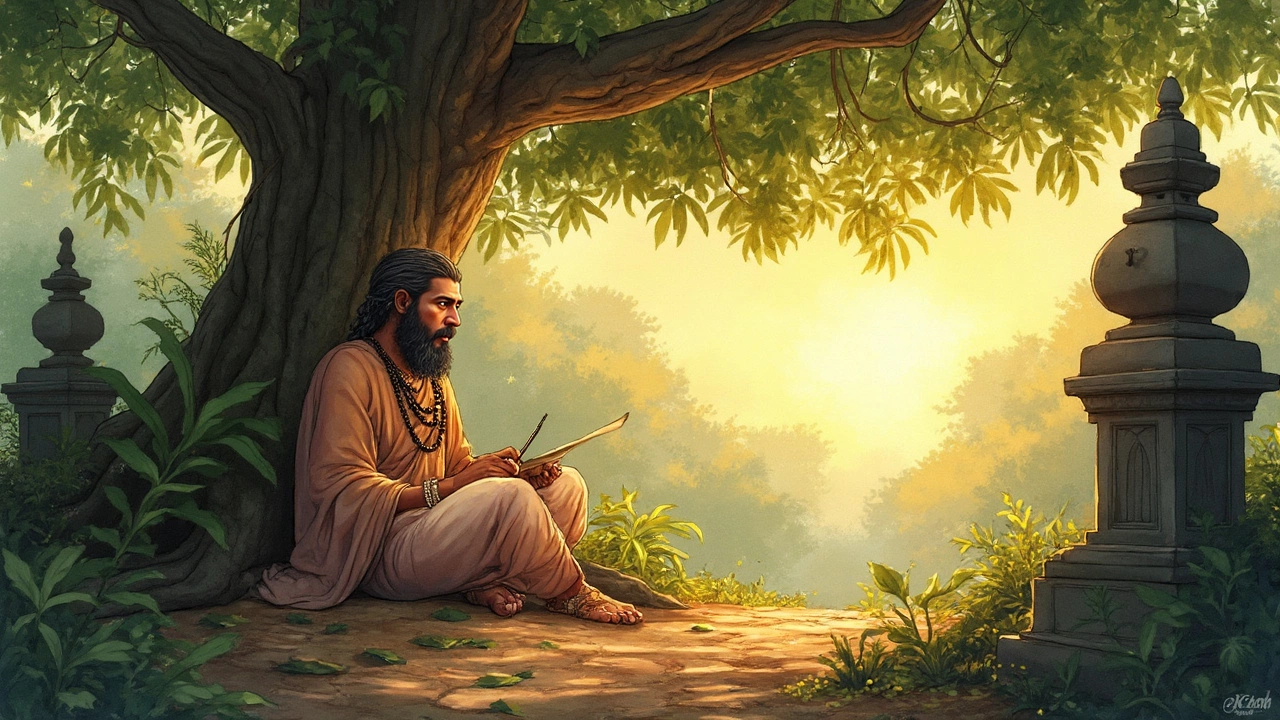Ancient Indian Poets: Who They Were and Why They Still Matter
India’s poetic tradition stretches back thousands of years, and a handful of early writers shaped the language, culture, and ideas that still echo today. From the elegant verses of Kalidasa to the epic storytelling of Vyasa, these poets gave us stories, morals, and beautiful imagery that still feel fresh.
Kalidasa, often called the Shakespeare of India, wrote plays like Shakuntala and poems that celebrate nature’s colors. His work shows how love and the natural world can be woven together in simple, vivid lines. Reading his verses feels like stepping into a garden where every flower has a story.
Vyasa is another giant, credited with composing the Mahabharata, one of the longest epics ever written. Though the Mahabharata isn’t strictly a poem, its verses and dialogues carry the rhythm of ancient poetry. When you read his lines, you get a glimpse of how everyday life, duty, and destiny were discussed in ancient courts.
Bhasa, a playwright predating Kalidasa, gave us bold dramas like Avimaraka that challenge social norms. His language is punchy and direct, making his plays surprisingly modern. If you enjoy theater, Bhasa’s work offers a quick way to feel the pulse of ancient Indian drama.
Asvaghosa, a Buddhist poet, wrote the Buddhacarita, blending spiritual teachings with lyrical storytelling. His verses teach patience and compassion without sounding preachy. Many readers find his calm style perfect for meditation or quiet reflection.
Other notable names include Bharavi, famous for the epic poem Kirātārjunīyam, and Subandhu, whose romantic prose shines in Vasavadatta. Each poet brings a different flavor—some focus on war, others on love, some on devotion. Together they paint a full picture of ancient Indian life.
Why Their Poetry Still Matters
These ancient verses aren’t just old texts; they influence modern movies, songs, and even everyday sayings. Phrases like “Satyam Shivam Sundaram” trace back to classical poetry, and many Indian festivals still recite verses from these poets. Understanding their work helps you catch references that pop up in news, memes, and conversations.
How to Dive Deeper into Ancient Indian Poetry
Start with a short, translated collection—many books provide side‑by‑side Hindi or English versions. Pick one poet, read a few verses, then look up the story behind each line. Join online forums or local reading groups that discuss classic Indian literature. Listening to audio recordings can also bring the original rhythm back to life.
Finally, keep a notebook for favorite lines. Write down why a particular couplet moves you—maybe it reminds you of a personal experience or a beautiful scene you once saw. Over time, you’ll build a personal anthology that connects ancient wisdom to your own world. Happy reading!
- Arjun Bhardwaj
- 30-06-25
- Indian Literature
Oldest Poet in India: Discovering Ancient Indian Poets and Their Legacy
Explore who is the oldest poet in India, uncover stories from early Indian literature, and learn about legendary poets and their impact on poetry.
Details